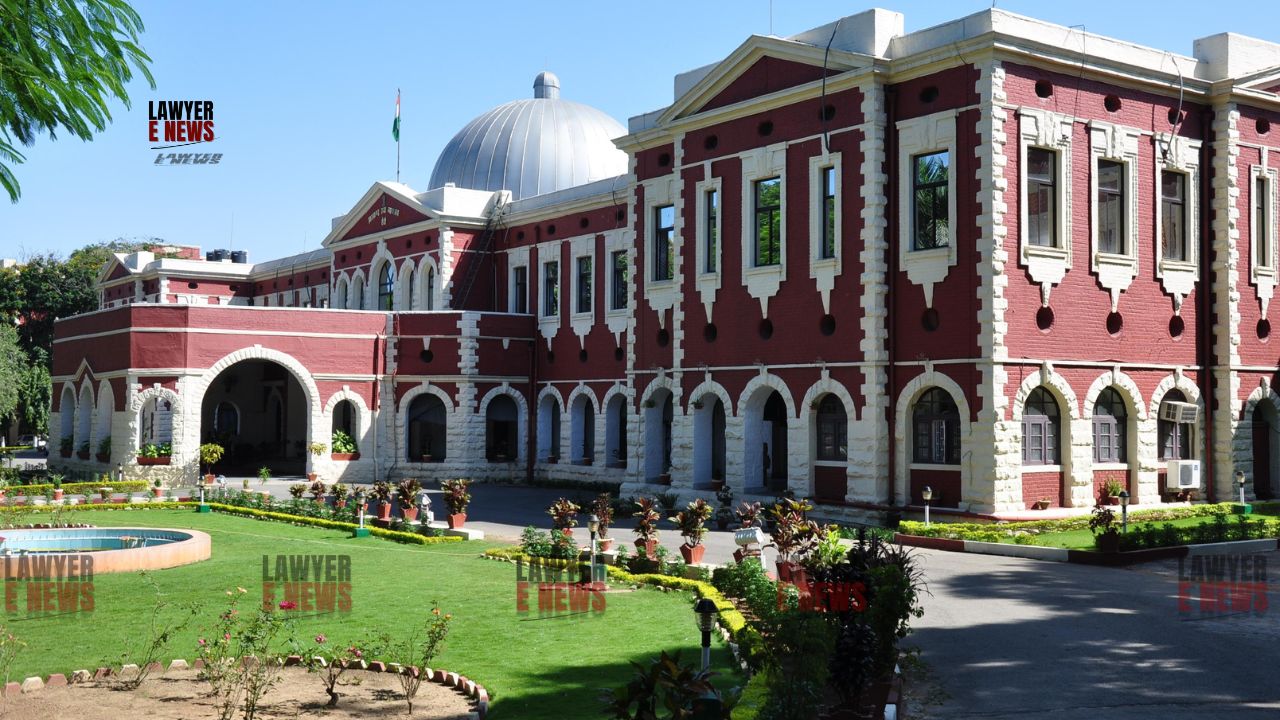-
by Admin
15 February 2026 5:35 AM



Jharkhand High Court set aside an appellate court’s order allowing the production of a death certificate as additional evidence under Order XLI Rule 27 of the Code of Civil Procedure, 1908 (CPC). The Court held that statutory conditions under Order XLI Rule 27 were not satisfied, and the death certificate, prepared after the trial court judgment, could not be admitted as evidence in the absence of pleadings to support its relevance.
The case arose out of a title suit filed by the petitioners seeking a declaration of ownership over certain property and an injunction to restrain the defendants from interfering with their possession. The petitioners based their claim on a sale deed dated March 5, 1973, executed by Ramwati Devi, the defendants’ mother. The trial court ruled in favor of the petitioners. During the pendency of the appeal, the defendants sought to introduce a death certificate of their mother claiming that she had died on July 15, 1970, which, if true, would render the sale deed void.
Additional Evidence Under Order XLI Rule 27 CPC
The Court meticulously analyzed the requirements of Order XLI Rule 27 CPC, which allows additional evidence to be introduced under specific circumstances. It noted that additional evidence can only be admitted if one of three conditions is met: the trial court refused to admit evidence that ought to have been admitted; the evidence was unavailable despite due diligence; or the appellate court requires the evidence to pronounce judgment.
Citing Satish Kumar Gupta v. State of Haryana [(2017) 4 SCC 760], the Court observed, “Additional evidence cannot be permitted to fill in the lacunae or to patch up the weak points in the case. There was no ground for remand in these circumstances.” In the present case, the death certificate was issued long after the trial court judgment and was based solely on the affidavit of one of the defendants. The defendants failed to establish that the evidence was unavailable despite due diligence or that it was essential for the appellate court to pronounce judgment. Therefore, the statutory conditions under Order XLI Rule 27 CPC were not met.
No Evidence Beyond Pleadings
A critical factor in the Court’s decision was the absence of any pleading in the defendants’ written statement regarding the death of their mother before the execution of the sale deed. The Court noted that the defendants had impliedly admitted the execution of the sale deed in 1973 and had not raised the issue of their mother’s death at any stage of the trial.
Relying on Bondar Singh v. Nihal Singh (AIR 2003 SC 1383), the Court reiterated, “In the absence of a plea, no amount of evidence led in relation thereto can be looked into.” The introduction of the death certificate without relevant pleadings amounted to an attempt to introduce evidence beyond the scope of the defendants’ case, which is impermissible under settled principles of law.
Questionable Circumstances Surrounding the Death Certificate
The Court expressed serious doubts about the authenticity of the death certificate. It noted that the certificate was issued in December 2018, after the judgment in the trial court, based on an affidavit filed by one of the defendants. An inquiry conducted by the Nagar Parishad revealed that the date of death was not verified and was tentatively stated as “40-45 years ago” without specific records.
The Court remarked, “Even if this document, which is a public document issued on the individual information of the applicant, is taken on record, there is no plea in the written statement that the mother of the defendants died before executing the sale deed.” The issuance of the death certificate appeared to be a post-judgment effort to bolster the defendants’ case and was deemed unreliable for lack of supporting evidence.
The Court strongly condemned the defendants’ attempt to introduce additional evidence as an abuse of process. Referring to K.R. Mohan Reddy v. Net Work Inc. [(2007) 14 SCC 257], the Court observed, “The appellate court should not pass an order so as to patch up the weakness of the evidence of the unsuccessful party before the trial court.” It concluded that the death certificate was a clear attempt to fill gaps in the defendants’ case and could not be permitted.
The High Court allowed the petition and set aside the appellate court’s order allowing the production of the death certificate as additional evidence. It held that the statutory conditions under Order XLI Rule 27 CPC were not met, the death certificate lacked evidentiary value, and its introduction was inadmissible due to the absence of relevant pleadings. The appellate court was directed to proceed with the appeal without considering the additional evidence.
In its concluding remarks, the Court reiterated, “No party can be permitted to adduce evidence beyond pleadings, and additional evidence cannot be used as a tool to fill lacunae in the case of an unsuccessful party.”
Date of Decision: December 2, 2024
